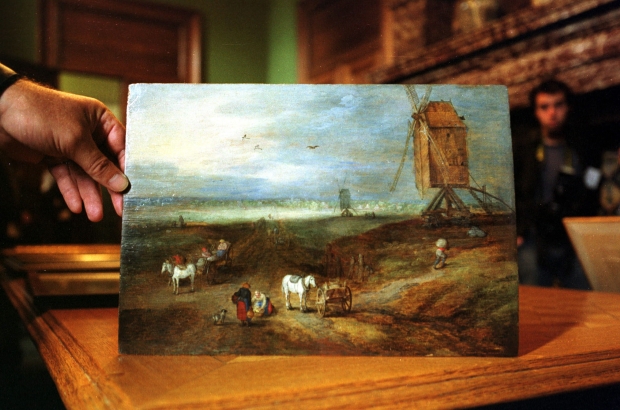- Daily & Weekly newsletters
- Buy & download The Bulletin
- Comment on our articles
Closure of Belgium's specialised art crime unit raises concerns
Since 1 January 2022, the unit of the federal judicial police specialising in the fight against the trafficking in cultural property is no longer active, following a decision from interior minister Annelies Verlinden based on a lack of finances.
According to a report published by Paris Match, "all the activities of the unit were stopped on 1 January until further notice due to a lack of capacity”.
The report also revealed that, in the absence of new budgetary resources, “the theft and trafficking of works of art will no longer be monitored at central level, that the ARTIST (Art Information System) database will no longer be updated and that finally, the relay of information from and to foreign police, Europol and Interpol will no longer be ensured."
A week before the unit ceased operations, the interior minister had been questioned in parliament about the lack of resources. According to the Paris Match report, Verlinden responded evasively, responding only to say that “the modernisation of the specialized ARTIST database of the federal judicial police – which lists stolen and trafficked cultural property – was taking its course." She added that, when need be, investigations would be carried out by “decentralised” departments of the police.
In addition to the lack of funding, the Paris Match report claims that the retirement of the unit’s leader and main expert, Lucas Verhaegen, had “precipitated” its closure. Verhaegen confirmed as much when he was interviewed on Belgian television last week when he explained that “there was no handover, even when I warned in 2018 that I was going to retire”.
"In the summer of 2019 I had the support of a colleague, a civilian, who did a magnificent job," he said. "But now I have learned that she has to do other tasks. So, this is really going to pose serious problems when it comes to, among other things, updating our database of stolen works of art which feeds reports into the Interpol database.”
“The other problem is that the foreign police will no longer have a central contact,” he added. “Since this is an international problem, I had contacts with colleagues from foreign countries every day. So, all Europol and Interpol messages are no longer going to be handled by someone with expertise in this matter."
Verhaegen also recalls that the unit had already been abolished in the past when Jan Jambon was interior minister. "But thanks to the central directorates of the judicial police, I was able to continue."
Also appearing on the La Première show with the retired police was Jean-Marc Delizée, federal deputy of the Belgian House of Representatives, who expressed his shock of learning the details of the unit’s closure via the media. "A very clear link has been made between art theft and the financing of terrorist networks,” he said. “Therefore, if we want to fight terrorism, we must also stop these sources of funding. In this sense, it is surprising that Belgium does not have a more proactive approach considering what’s at stake.”
Verhaegen added that the risk of international money laundering and the financing of terrorism goes far beyond the ownership of works of art. "The big problem is that for some people, it is a soft crime, it is unspectacular,” he said. “So, the hierarchy and politicians do not always know how to score points from this phenomenon.
"Also, since it is a crime that often takes place abroad, Belgian society is not directly concerned. When criminal organisations are looting cultural property in Iraq or Syria which then passes through Egypt or Libya, we see no consequences here in Belgium. But maybe in the long term we will because, indirectly, we are allowing the funding of these criminal groups."
Belgium, in any case, plays an important role in this traffic. Some abroad even claim that the country is a hub for stolen artworks, a claim that Verhaegen considers to be "a little strong," although he concedes that “a lot of objects circulate and transit through Belgium. This may be due to our legislation and the controls that we do not have or that we do not know how to enforce them. But I don't believe Belgium is the only hub."
“What makes it difficult as well is the fact that the legislation of each country in this area is different whether you are in France, Germany or the Netherlands,” explained Verhaegen. "You need experts in this field. Anyone can do an investigation, but do they have enough knowledge? That's something else."
Didier Viviers of the Royal Academy of Belgium added his voice to the debate by saying that “this unit was already overwhelmed by events but today, there is now an open door to all traffickers".
“It is the security of the Belgian citizen that is at stake because behind this illicit trafficking of antiquities, there is a link to the trafficking of drugs, and international terrorism,” he added. “And so, to fight against this illicit trafficking is to fight against the drug mafias, to fight against money laundering of all kinds."
Belgium has made a commitment to Unesco, the United Nations Security Council and the European Parliament to make every effort to protect cultural heritage. It is therefore "more than a catastrophe, it is a real shame for Belgium, which has ratified these international agreements," said Didier Viviers.



















